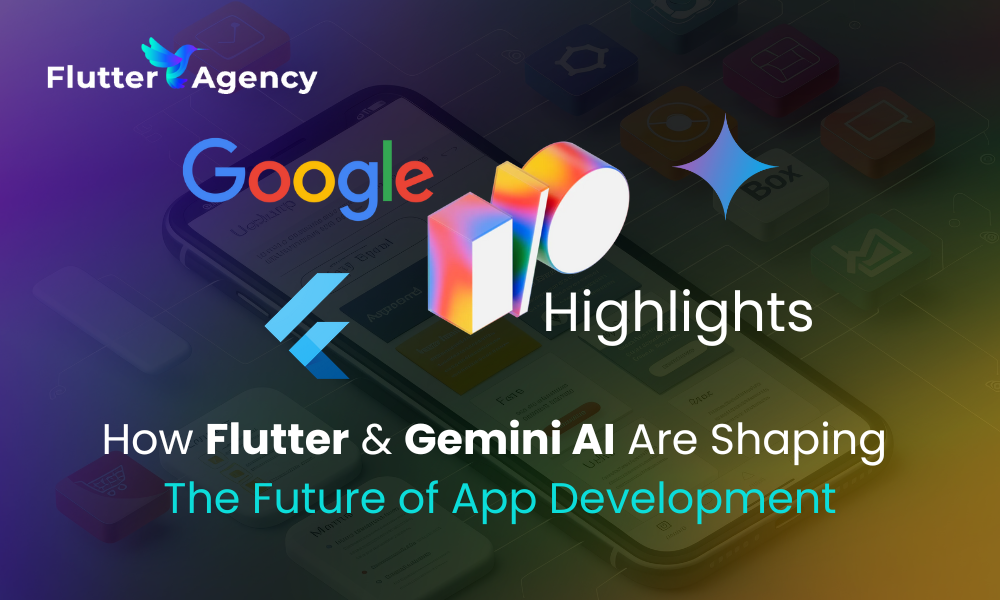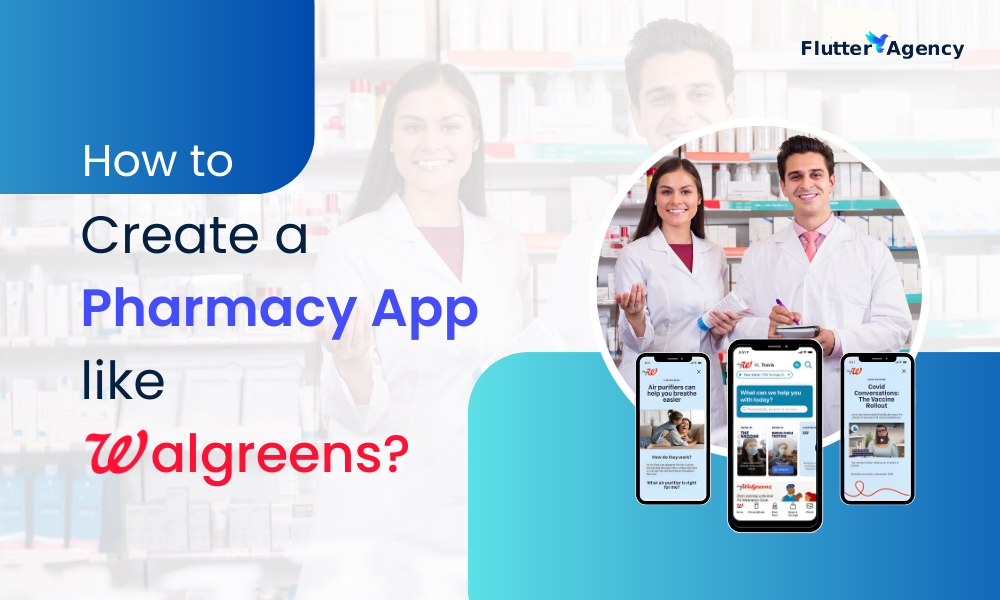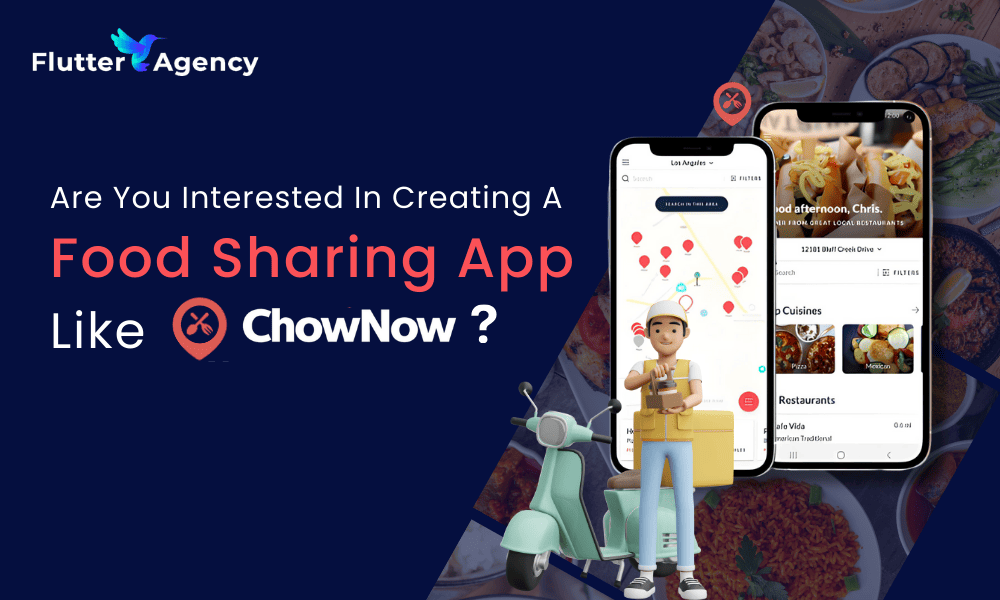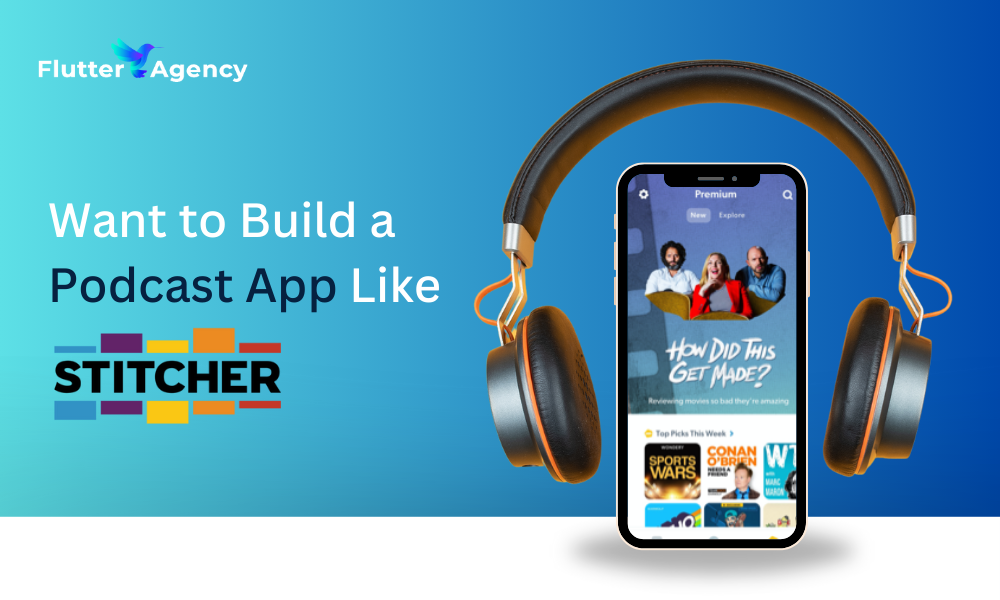Google I/O 2025 Recap: How Flutter 3.32 and Gemini AI 2.5 Are Redefining App Development
At Google I/O 2025, one thing was reaffirmed: the future is smarter, faster, and more interconnected than ever. With significant announcements around Flutter 3.32 and Gemini AI 2.5, it is clear Google is continuing to accelerate towards an AI-first, cross-platform development framework.
Flutter continues its growth as the strongest toolkit for high- performance apps across mobile, web, and desktop while Gemini AI is redefining the possibilities of real-time multimodal intelligence. Together, they signal a significant change in the way developers will create beautiful and responsive contexts for intelligent experiences.
What does this mean for developers? Faster iterations and smarter features.
What does that mean for businesses? More opportunities for personalized, automated experiences.
What does that mean for technical leaders and teams? The next evolution of digital transformation.
The announcements from Google I/O 2025 contain more than just updates; they represent a clear vision for AI-powered app development in an increasingly intelligent and connected world.
Flutter 3.32: What’s New and Why It Matters
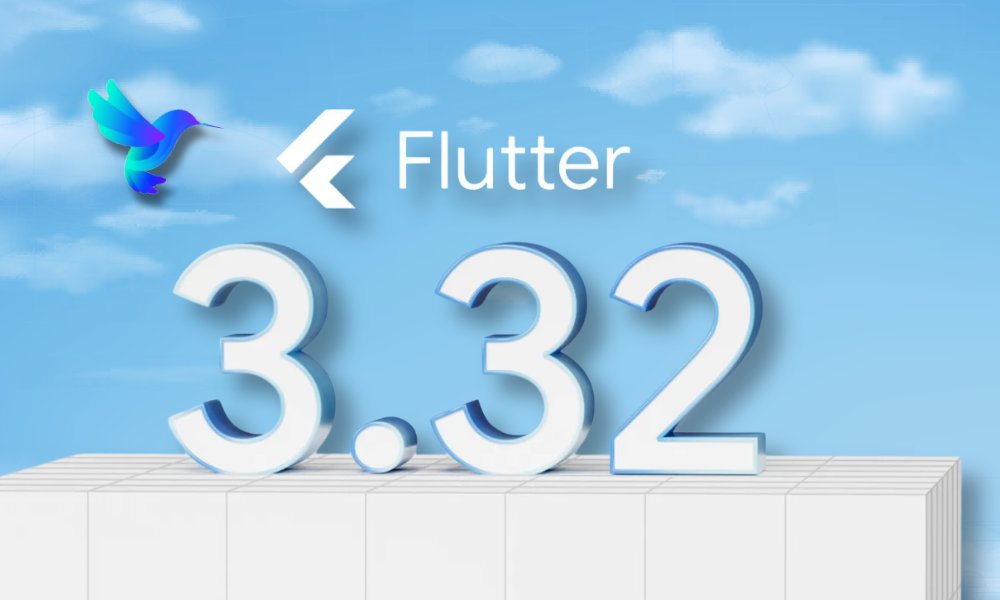
Flutter 3.32, unveiled at Google I/O 2025 app development, represents a major advancement in how developers will build, debug, and deploy cross-platform apps. While this release has some great new features, the emphasis of this release was productivity. Developers will now see faster, smoother, and a more powerful end-to-end development experience.
Improved Developer Experience
With the New Property Editor, developers can visually inspect and manipulate widget properties in real time.
- Reduces context switching between code and preview of UI.
- Easy to modify padding, colors, layout, and widget parameters,
- Enhanced tooling to iterate faster:
- Simplified project scaffolding,
- Clearer error messages,
- Smoother debugging
- Ability to quickly prototype and more focus on user experience.
Dart 3.8 Features
Flutter 3.32 also includes Dart 3.8 with two new language features that enhance code readability and safety:
- Null-aware elements make a safer and more elegant approach to working with list and map entries conditionally included, which enhances null-safety patterns in everyday Flutter development.
- Dot shorthands provide a more precise way to access properties or methods deeply nested one or more levels down, eliminating some boilerplate and reducing the complexity developers need to comprehend in their code.
With these advancements, Flutter’s declarative style becomes more expressive and maintainable than ever.
Performance Improvements
- Hot reload with state retention: Hot reload keeps the app state so when you reload code updates, the app behaves like it would normally, making testing and debugging quicker.
- WebAssembly GC (WasmGC) support: Native garbage collection helps Flutter web apps run faster and more memory efficiently.
At Google I/O 2025, Gemini AI 2.5 emerged as one of the most ground breaking announcements, offering developers and businesses an advanced AI toolkit with deeper integration, real-time understanding, and greater flexibility across platforms. This latest version represents a leap forward in Google’s mission to make AI more useful, context-aware, and universally accessible.
Gemini AI: Smarter, Faster, More Integrated
Introduction to Gemini 2.5
Gemini 2.5 is intended to be more intelligent, quicker, and more intuitive than the previous versions. Gemini now boasts improved reasoning, an understanding of user intent, and correctly executes various tasks with much more accuracy. Whether you’re building a chatbot, automating content, or enabling voice-driven workflows, Gemini 2.5 now interacts much more naturally and human-like.
Its most exciting capability is its availability across platforms. Gemini is past the standalone application only and now lives across Android, Chrome, and Google Workspace. Developers can easily access Gemini APIs via mobile apps, web experiences, and productivity tools like Gmail, Docs, or Sheets. Being able to integrate AI-powered features has never been easier.
Project Astra
Complementing Gemini 2.5, Google DeepMind also rolled out their latest project, Project Astra, which is in the works to produce a real-time multimodal AI agent. Astra takes interaction to the next level in real-time by incorporating camera input, voice capability, and context to provide real-time, dynamic help. You could point your camera at a whiteboard, and ask Astra to summarize it. You could get spoken interpretations of what you’re observing in your environment. This is pure science fiction material and is coming to us quickly.
The outcome of Project Astra is a universal AI agent that can see, reason, and act based on multiple modalities and across multiple platforms. This is sort of a big deal for app development because it opens up the ability to develop apps that can “know” images, sounds, and context as it happens.
AI Meets UI: The Fusion of Flutter + Gemini
The Flutter Gemini integration, through Flutter 3.32 and Gemini AI 2.5, represents a pivotal shift in how we approach app development, moving from static, reactive interfaces to truly intelligent, responsive experiences. This fusion expands the potential to design apps that not only look good and perform well, but also understand user intent, generate content on the fly, and respond through voice, visuals, or context.
Intelligent App Features
Voice-Driven User Interfaces
One of the most transformative outcomes of integrating Gemini AI into Flutter apps is the potential for voice-driven UIs. With Gemini 2.5’s deeper natural language understanding and multimodal capabilities, developers can now build applications that support conversational and contextual voice interactions.
Flutter’s flexibility allows these voice interactions to be tightly integrated with custom UI components, ensuring seamless transitions between speaking, listening, and visual feedback. It’s not just about adding voice—it’s about creating fluid multimodal experiences.
Smart Content Generation
Beyond voice, Gemini’s AI capabilities open doors for smart content generation within Flutter apps. This means apps can now create or adapt content in real time, based on user input, historical behavior, or contextual data.
Designing AI-First Interfaces
The merging of Gemini and Flutter calls for a new design mindset—AI-first interfaces. These interfaces anticipate user needs, personalize output, and adapt to different interaction modes—voice, touch, text, or image. As Gemini continues to evolve with tools like Project Astra, this design approach becomes critical for staying ahead in competitive digital markets.
Use Cases
The combination of Flutter 3.32 and Gemini AI 2.5 opens up a wealth of possibilities for creating intelligent, dynamic, and personalized applications across any number of domains. Be it productivity apps, e-commerce applications, or mission-critical applications in healthcare, education, and finance, this combination is redefining user engagement with digital products.
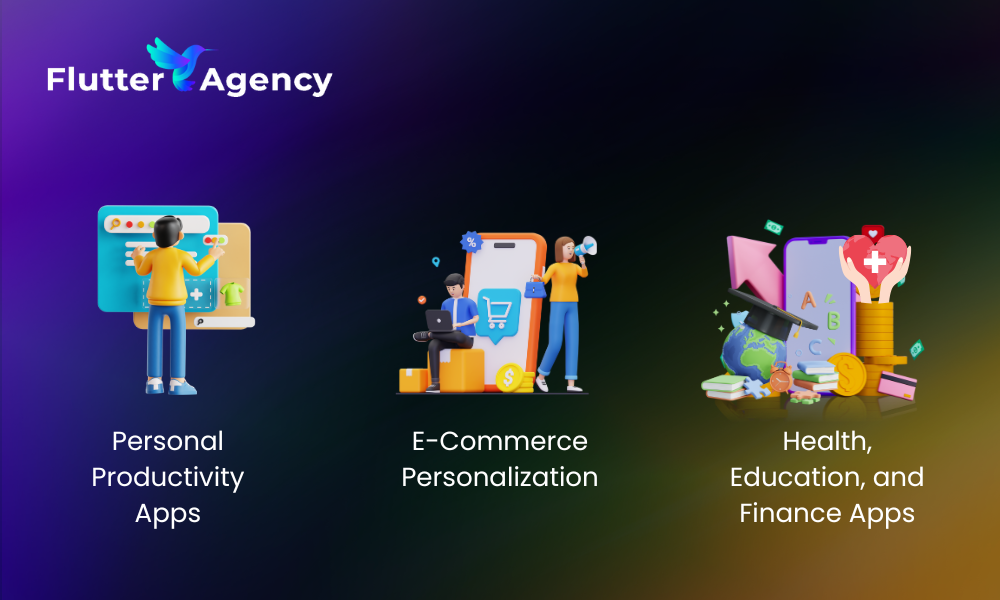
Personal Productivity Apps
When it comes to personal productivity, it’s all about time and understanding. With the real-time and intelligent content generation capabilities of Gemini AI, productivity apps built with Flutter can now provide context-aware recommendations, automated summaries, and intelligent task management like never before.
All these capabilities provide time awareness, but more importantly, reduce cognitive load, and give users the headspace to focus on their real priorities while the app organizes their work and provides insights. Flutter’s cross-platform capabilities also ensure the experience is uniform and cross-device—mobile, tablet, or desktop.
E-Commerce Personalization
Personalization is the foundation of engagement and conversion in e-commerce, though we’re going to eschew the usual flashy example of personalization to make another point here. And with the integration of Gemini AI within Flutter-based storefronts, it is now possible for developers to create hyper-personalized shopping experiences—and not the “here are your recommendations based on what you bought last time” kind of personalization. An AI-powered shopping assistant could analyze everything from a customer’s behaviors/preferences and their online search intent to instantly make product recommendations in real time.
Read More: Simple Steps to Build The Home Depot eCommerce App
Gemini could create personalized product descriptions, pinpoint unique selling propositions, AND span chat or voice responses that simulate conversations with the customer in question.
AI-powered chatbots are now capable of spotting customer queries and providing summarized order histories as inquiry responses. They can provide opportunities for suggesting additional items or complementary products related to previous purchases, all while participating in the returns process, and it is painfully obvious this provides frictionless, endless shopping experiences.
Health, Education, and Finance Apps
In healthcare, apps can be designed to interpret people reporting their symptoms via their voice, provide real-time interpretation of medical data (biometrics tracking), and generate customized care reminders/wellness tips. Gemini’s natural language understanding will help patients articulate their symptoms in ways that are meaningful to their care providers, with the ability to bridge language barriers and literacy levels.
Read More: AI in Healthcare: Automating Tasks to Personalizing Treatments
In education, Gemini can be your AI tutor. For example, it will generate explanations, practice questions, and summaries (using scanned textbooks, audio lessons, or user questions), and let the student engage in the learning experience through voice, images, or text, with guidance that fits the pace and comprehension of the user.
In finance, apps can interpret transaction histories and generate smart budget view insights, anomalies detection, and explain complex financial literacy terms with user-friendly summaries. An app could also have an AI assistant that answered financial planning questions or generated investment reports based on individual goals or risk tolerances.
The Flutter + Gemini combo is not only enhancing UI, it is changing what apps do in the life of the user from everyday tasks to vital decisions. By incorporating intelligence within the interface, developers are no longer limited to creating applications that are insightful and adaptive to user needs, but even have the potential to be truly life-changing across various industries.
For Developers: What This Means Practically
The announcements at Google I/O 2025 represent real, substantive benefits for developers of Flutter and Gemini. Consider the following business implications:
Accelerated Cross-platform Development
- Make once, run everywhere: Flutter 3.32 improves developers’ ability to develop across Android, iOS, web, desktop, and even embedded!
- Hot reload with state retention on the web speeds up debugging and UI tweaking as it doubles as an exhaustive saving.
- WebAssembly (WasmGC) support greatly enhances Flutter Web app performance to the point where it feels native.
Smarter, More Capable Apps with Gemini APIs
- Gemini 2.5 incorporates natural language, vision, and multimodal intelligence in apps that can be obtained via simple API calls.
- Developers can now build apps with Gemini AI by integrating voice interaction, content summarization, translation, or image generation features directly in Flutter apps.
- Gemini’s cross-platform support (ANDROID, CHROME, WORKSPACE) fulfills Flutter’s multi-platform ambition.
Greater Tooling and Developer Experience
- The new Property Editor facilitates the tweaking of widgets / UI elements visually (great for rapid prototyping and design iteration).
- With Dart 3.8, the addition of contextual syntax improvements such as null-aware elements and dot shorthands help reduce boilerplate code and improve readability for developers.
- Better IDE integrations and speedier debugging tools improve workflows for teams developing complex UI navigation flows.
In short, Flutter and Gemini together give developers more power, less friction, and greater creative freedom. You can build apps that are smarter, faster, and more engaging—while coding more efficiently than ever.
The Bigger Picture: Google’s Vision for AI-Powered Development
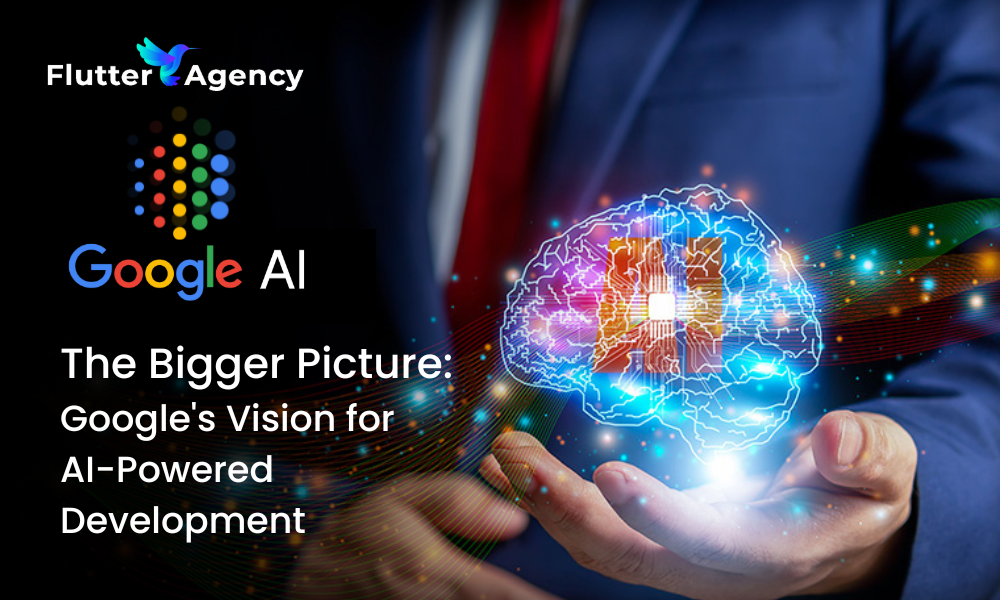
Google I/O 2025 makes one thing clear: the future of app development is AI-first, and Flutter + Gemini are at the center of this vision.
Flutter + Gemini: Google’s Strategic Duo
Flutter is a key ingredient within the artificial intelligence-driven direction of Google. Flutter is a flexible, cross-platform framework to allows developers to create apps once, and deploy them to various devices – phones, desktops, and wearables. Next, Gemini brings intelligence to the apps to turn static interfaces into interactive, adaptive, and contextually aware experiences.
When combined, Google is making a development environment where apps – can respond to user input, comprehend context, build intent understanding, and personalization of outputs. This begins with an experience that shifts from traditional experiences, through an experience driven by data, voice, visuals, and contextual relationships that adapt and learn in real-time.
Implications for Mobile, Web, and Wearables
Mobile: You can anticipate an entirely new generation of apps that function like intelligent companions – completing tasks, summarizing content, and engaging naturally via voice or imagery. Gemini provides functionality like live translation, adaptive personalization, and intelligent recommendations – all in a mobile experience built using Flutter.
Web: With the combination of WebAssembly and Gemini, Flutter Web apps can now achieve almost native performance while still providing the richness of AI functionality. Imagine a dashboard that adapts based on user behavior or a web form that summarizes input automatically.
Wearables: Google’s vision of an AI agent that will always be available (as demonstrated in Project Astra) is now applying Gemini to smartwatches, AR glasses, and IoT devices. Flutter’s adoption for embedded and wearable platforms continues to grow as the opportunities for these devices provide rich, coherent intelligent experiences that link seamlessly into your digital life.
The Road Ahead
Google is not just integrating AI into its development tools but instead is changing how apps are created and how users engage with those apps. Flutter provides the base, and Gemini adds the intelligence.
Together, they symbolize Google’s ambition to help developers and businesses build impactful, human-centered applications faster, smarter, and on every screen. With AI becoming central in every interaction, Flutter and Gemini are Google’s clearest signals for what is to come: universal, intelligent, deeply connected app experiences.
Conclusion
At Google I/O 2025, we announced a tremendous step forward in application development by marrying Flutter 3.32 with Gemini AI 2.5. With build performance and outstanding UI experiences, hundreds of developers can quickly develop beautiful apps across platforms using Flutter—and by enhancing development tools, improving performance and UI capabilities across its ecosystem in Flutter 3.32, and creating better development features and improvements in Dart 3.8, Flutter can now utilize the power of Gemini AI. This is an excellent opportunity for all developers, startups, and technology companies who are looking to integrate AI capabilities within the products they will deliver to leverage the capabilities of Flutter and Gemini. The ecosystem has matured, the tooling is mature, and the demand for large-scale AI human experiences is increasing exponentially.
So today, go get started with Flutter 3.32 and the Gemini SDK, and get ahead of the curve! If you are looking for the future of application development, connect with experts at Bosc Tech Labs who are introducing the next generation of applications by developing applications with intelligence.
Contemporary ventures
Recent blog
ready to get started?
Fill out the form below and we will be in touch soon!
"*" indicates required fields

